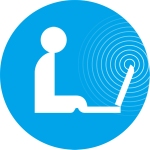 “For the past few years, both California State University and University of California libraries have been experimenting with packages that replace paper books with ebooks. The advantages are obvious … But there’s a huge difference between casual and college reading, and recent studies prove beyond doubt that while ebooks are perfectly fine for the latest John Grisham or Fifty Shades of Grey, they actively discourage intense reading and deep learning.”…
“For the past few years, both California State University and University of California libraries have been experimenting with packages that replace paper books with ebooks. The advantages are obvious … But there’s a huge difference between casual and college reading, and recent studies prove beyond doubt that while ebooks are perfectly fine for the latest John Grisham or Fifty Shades of Grey, they actively discourage intense reading and deep learning.”…
North Dakota libraries, including the BSC Library, are also experimenting with ebooks.
In this thoughtful essay, Peter C. Herman, a professor of English literature at San Diego State University, points out some of the positives and negatives of ebooks for academic libraries and their users. Read entire essay
What do you think?


